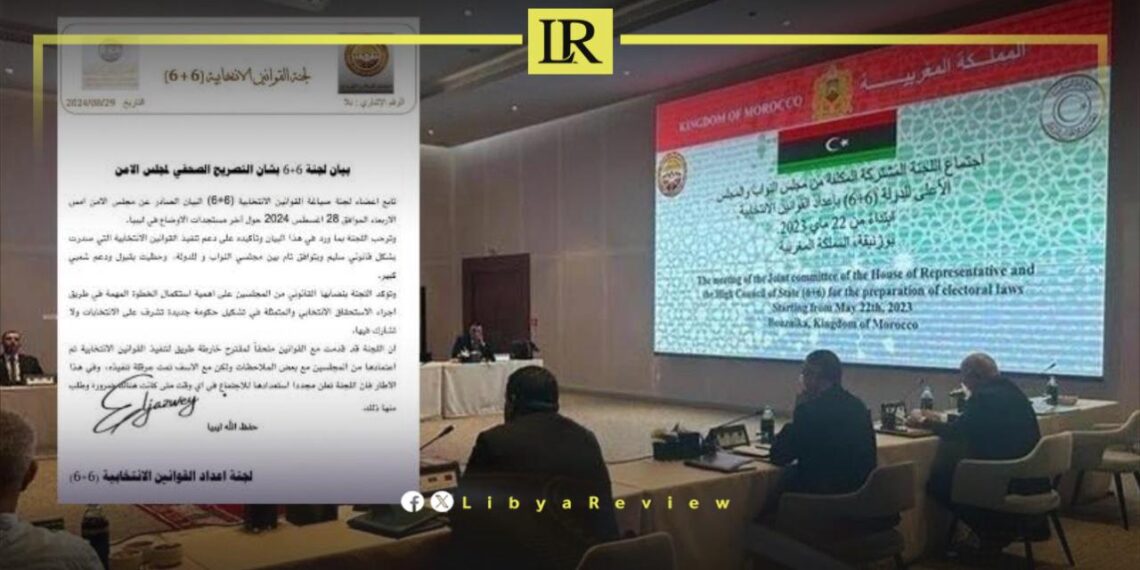In a crucial moment for Libya’s journey towards stability and democracy, the “6+6” Committee, a joint body of the House of Representatives and the “State”, has issued a statement expressing a clear desire to make tangible progress in the upcoming elections. This follows the committee’s response to the recent statement by the United Nations Security Council, which emphasized the need to move forward in the electoral process as a fundamental exit from the political crisis engulfing the country.
The committee’s call for the formation of a new government to oversee the elections without being a party to them reflects a deep understanding of the need to separate powers and neutralize the executive government from the electoral process, ensuring the integrity and transparency of the forthcoming elections. This step is seen as a cornerstone in reaffirming the national commitment to conduct free and fair elections that could potentially rescue the country from its ongoing political deadlock.
Given Libya’s recent crisis history, the formation of a new government independent of the current political landscape would significantly enhance voter confidence and increase the chances of a successful electoral process. Past experiences have shown that the supervision of current governments, often part of the political divide, over elections can lead to increased doubts about their integrity, decreasing public turnout and hindering the desired progress.
However, this direction has not been without obstacles, as the “6+6” Committee’s statement pointed to their submission of an addendum to a roadmap proposal for implementing the electoral laws approved by both councils. This roadmap included constructive feedback aimed at improving and facilitating the electoral process on the ground. Unfortunately, there have been clear attempts to obstruct the implementation of this proposal, reflecting multiple challenges the committee still faces in its efforts to achieve consensus among different parties.
The committee has expressed regret over these obstructions, reaffirming its readiness to communicate and meet with all concerned parties at any time deemed necessary. This stance demonstrates the committee’s flexibility and willingness to cooperate, a positive step towards enhancing national dialogue and understanding among all political factions.


